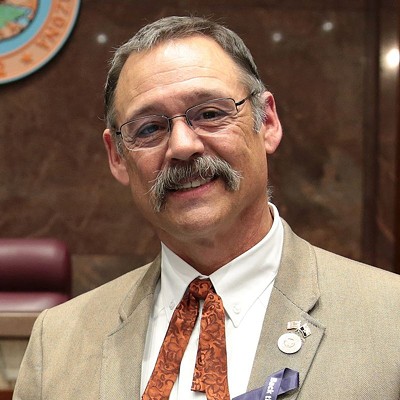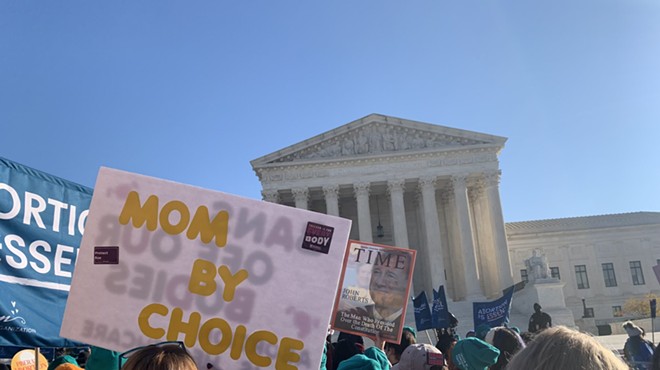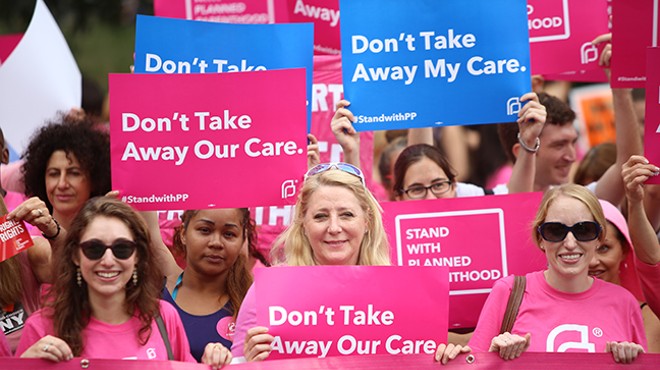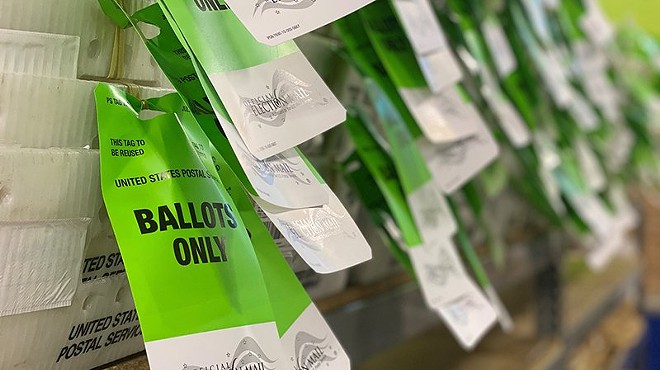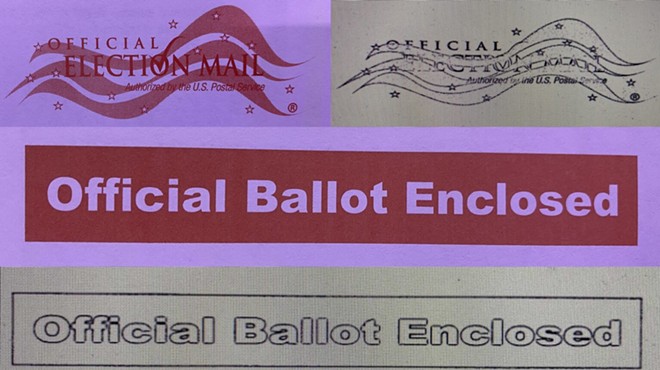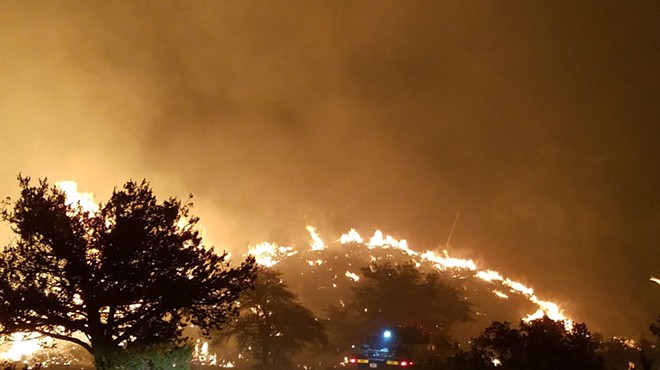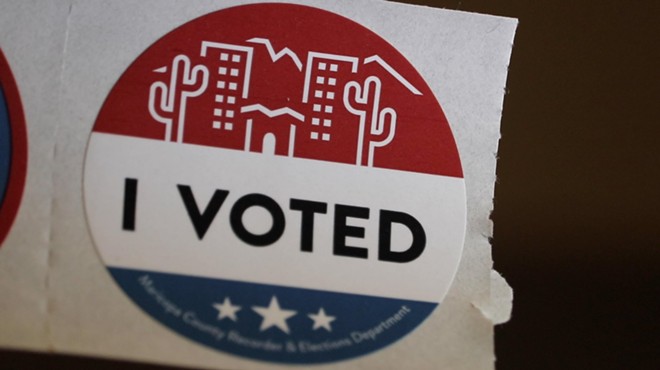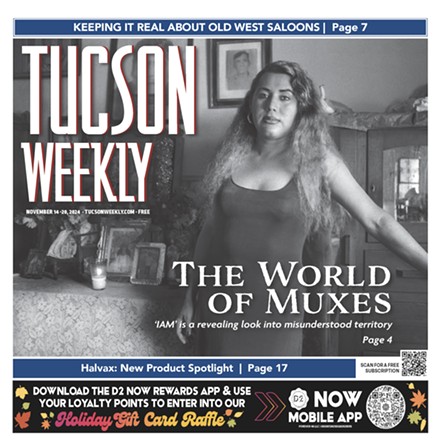Wednesday, December 9, 2015
City Council OKs Ordinance Requiring Permits to Feed Homeless, Limits Size of Stuff Allowed on Sidewalks
Under a new set of rules approved by the Tucson City Council Tuesday night, the city's homeless residents are not allowed to have items bigger than 4-cubic feet on the sidewalk, faith groups and others cannot distribute pre-packaged food or beverages at parks without a permit from the city and sidewalks are off limits between 7 a.m. and 10 p.m.
A homeless protester asked the council: Can you fit all of your belongings within 4-cubic feet?
"I ask you to consider that right now," Roy Trout told the council before its vote. "Number 2, how many of you hold picnics in the park every day or on special occasions? Why can't the homeless have picnics at the park with the church? We are coming up with all of these laws and sanctions...to make life harder on each and every member that is out there, life is already hard enough." He said that while teenagers beat up homeless people, such as himself, on the streets, the City Council "is worried about 4-cubic feet for a homeless man's belongings. It doesn't make sense to me. The City Council is worried about a church going into a park and giving a homeless man a meal and having a picnic with them."
The ordinance—which passed with a 5-2 vote, and is pretty much a set of clarifications and amendments to provisions that were already in place—concerned critics, and even some members of the council.
City Councilwoman Karin Uhlich (Ward 3) was very worried about ending up in court, and the possibility of losing federal funding from the U.S. Department of Housing and Urban Development—the agency that keeps many homeless shelters afloat. Recently, she pointed out, the Department of Justice said certain actions, such as not allowing people to sleep on sidewalks, is a violation of the Eighth Amendment's protections against cruel and unusual punishment, and thus unconstitutional. Simply put, it criminalizes homelessness, DOJ argued. Uhlich unsuccessfully pleaded to have DOJ review the city's suggested new rules before voting on them. She and Councilman Steve Kozachik (Ward 6) voted against the new ordinance.
"Everybody seems to want to downplay those issues but I am not willing because there is a lot at stake," Uhlich said at the meeting. "My preference would be not to [move on] at this point. It is arbitrary...that 4-cubic feet...we are going to end up in court. I think it will put our HUD resources at risk." Newly re-elected Councilwoman Shirley Scott (Ward 4) wasn't sure the DOJ would pay that much attention to an ordinance in the City of Tucson. But, they have been striking down similar ones in other cities, such as Boise, Idaho. "They must have a mechanism to what constitutes as criminalizing homelessness and what does not," Uhlich responded.
"Whether people can give water to homeless people...I don't think we add value to our efforts [and] really tackle how we are going to get people off the streets and [to] a job," she said. Uhlich also questioned what the penalties would be if a person doesn't follow the provisions. According to City Attorney Mike Rankin—who had the duty of piecing together the new ordinance—the civic fines could cost roughly $100 and these would be enforced by the Tucson Police Department.
New Restrictions
The rules require health permits, which will be free of charge, to distribute pre-packaged food and beverages (except for bottled water) at parks and areas adjacent to parks. The city can deny these if it finds the request could harm public health, and that the permits are good for 10 days, but will automatically renew for an additional 50 days, unless it is otherwise determined. Councilman Paul Cunningham (Ward 2), who was also recently re-elected, added an amendment that will not require permits on Easter, Thanksgiving or Christmas.
When it comes to bikes, backpacks, sleeping bags and other belongings, there is now a size restriction of 4-cubic feet for items allowed on sidewalks, and these items have to remain 5 feet back from the curb. Rankin told the council the size limitation was necessary to avoid another problem with so-called dream pods on sidewalks and parks (remember Safe Park?). Also, no one is allowed on the sidewalks with their stuff between 7 a.m. and 10 p.m., citing heavy pedestrian traffic.
People will be allowed to rest on the sidewalks starting at 10 p.m. until 7 a.m. Along with that, city parks will be open until 10 p.m. Ranking said at the afternoon study session that the idea behind this is for homeless individuals to have a place to be at all times. When the park closes, they can move to the sidewalks.
"All of this is trying to achieve a balance, protect public safety [and] the ability to use public spaces, including sidewalks. At the same time, we can't criminalize folks and we won't criminalize folks," Rankin told the council. "Twenty-four hours a day, seven days a week, the homeless, particularly in downtown, will have a place to be with their stuff."
The council seemed interested in amending the new ordinance to tweak the areas they were not happy with (Uhlich actually wanted to move the vote to a later date), and review these rules often to keep them up to the standards of DOJ.
But, as re-elected Councilwoman Regina Romero (Ward 1) put it, the ordinance is not going to be the answer to the issue of homelessness. They merely fix the concerns downtown merchants have over too many homeless people congregating in one spot. The city should continue to move toward a humane solution.
Tags: regina romero , paul cunningham , karin uhlich , shirley scott , richard fimbres , steve kozachik , jonathan rothschild , roy trout , tucson city council , homeless , homelessness , department of justice , department of housing and urban development , criminalization , tucson



